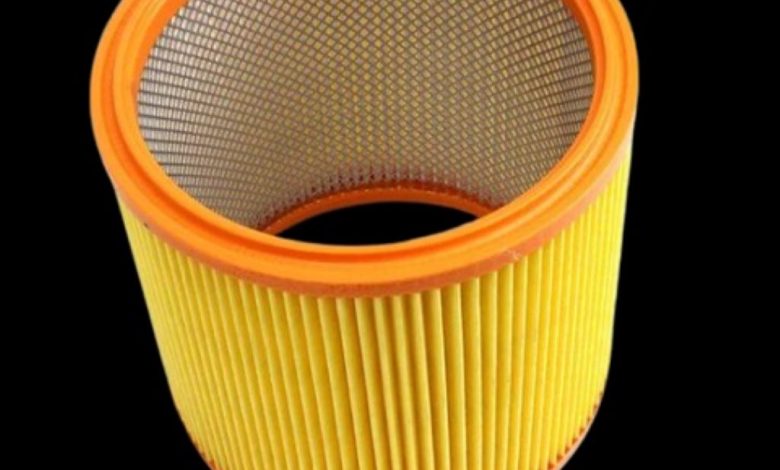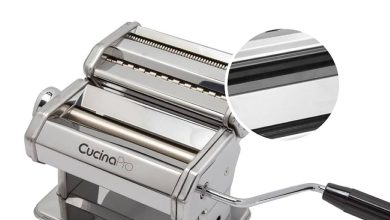Vacuum Filter Role in Air Quality

Maintaining clean air in your home is essential for health and comfort, and a vacuum cleaner plays a big part in this. Specifically, the vacuum filter is a key component that traps dust, allergens, and particles, ensuring cleaner air. Choosing the right vacuum, like those reviewed on Best Vacuum Cleaner, can make a significant difference in air quality. Without a proper filter, a vacuum may do more harm than good, spreading dust and allergens back into your home. This article explores the critical role of vacuum filters in air quality and why they matter.
Why Vacuum Filters Matter
Vacuum filters capture tiny particles that would otherwise escape back into the air during cleaning. These particles include dust mites, pet dander, pollen, and even bacteria. A good filter ensures these contaminants stay trapped, preventing them from circulating in your home. However, what happens if a vacuum doesn’t have a filter? Without one, the vacuum becomes a dust-spreading machine, pushing allergens and debris into the air you breathe, which can worsen allergies or respiratory issues.
Filters work by trapping particles as air passes through the vacuum. High-efficiency particulate air (HEPA) filters, for example, capture 99.97% of particles as small as 0.3 microns. This makes them highly effective for improving indoor air quality. Without a filter, these tiny particles are released, reducing the vacuum’s effectiveness and polluting your home’s air.
How Vacuum Filters Improve Air Quality
Vacuum filters directly impact the air you breathe by removing harmful particles. Here’s how they contribute to a healthier home environment:
- Trap Allergens: Filters capture allergens like pollen, pet dander, and dust mites, reducing allergy symptoms.
- Reduce Dust: By trapping dust, filters prevent it from settling on furniture or being inhaled.
- Eliminate Bacteria: Some advanced filters can trap bacteria and mold spores, improving hygiene.
- Minimize Odors: Certain filters, like carbon-activated ones, reduce odors from pets or smoke.
A study by the Environmental Protection Agency (EPA) highlights that indoor air can be two to five times more polluted than outdoor air. Vacuum filters help combat this by ensuring particles are contained, not redistributed. Regularly cleaning or replacing filters keeps them effective, maintaining optimal air quality.
What Happens Without a Vacuum Filter?
Operating a vacuum without a filter has serious consequences for air quality and the vacuum itself. Without a filter, dust and debris pass through the vacuum’s motor and are blown back into the room. This not only pollutes the air but can also damage the vacuum’s internal components, reducing its lifespan. For example, dust buildup in the motor can cause overheating or mechanical failure.
Additionally, the lack of a filter allows allergens to spread freely, which can trigger asthma or allergies. People with respiratory conditions are especially vulnerable. Fine particles, like those from pet dander or pollen, can linger in the air for hours, making the environment less safe. Therefore, always ensure your vacuum has a functioning filter to avoid these issues.
Types of Vacuum Filters and Their Benefits
Not all vacuum filters are the same. Different types offer unique benefits for air quality. Understanding these options helps you choose the right vacuum for your needs.
HEPA Filters
HEPA filters are the gold standard for air quality. They trap 99.97% of particles as small as 0.3 microns, including allergens and fine dust. These are ideal for allergy sufferers or homes with pets. However, they require regular cleaning or replacement to maintain performance.
Foam Filters
Foam filters are common in many vacuums and are washable, making them cost-effective. They capture larger particles but may not be as effective for tiny allergens. Combining foam filters with other types, like HEPA, enhances air quality.
Carbon Filters
Carbon filters excel at reducing odors. They’re great for homes with pets or smokers. While they don’t trap as many particles as HEPA filters, they improve air freshness, contributing to a cleaner environment.
Bag Filters
Some vacuums use bags as filters. These trap dust and debris effectively but need regular replacement. High-quality bags with microfiltration can rival HEPA filters in performance. Choosing the right filter type depends on your home’s needs, such as pet hair or allergy concerns.

Maintaining Your Vacuum Filter for Optimal Air Quality
Proper maintenance of vacuum filters is crucial for consistent air quality. Over time, filters become clogged with dust, reducing their efficiency. Here are some tips to keep filters working well:
- Clean Regularly: Washable filters, like foam or some HEPA types, should be cleaned monthly. Follow the manufacturer’s instructions to avoid damage.
- Replace When Needed: Non-washable filters, like some HEPA or bag filters, need replacement every 3-6 months, depending on usage.
- Check for Damage: Inspect filters for tears or wear. A damaged filter won’t trap particles effectively.
- Use Genuine Parts: Always use manufacturer-recommended filters to ensure proper fit and performance.
Neglecting filter maintenance can lead to poor air quality and strain on the vacuum’s motor. A clean filter ensures the vacuum performs at its best, keeping your home’s air fresh and safe.
The Impact of Poor Air Quality in Homes
Poor indoor air quality can have serious health effects. According to the World Health Organization (WHO), indoor air pollution contributes to respiratory issues, allergies, and even long-term conditions like asthma. Vacuuming without a filter exacerbates these problems by redistributing pollutants. This is especially concerning in homes with children, elderly residents, or those with preexisting health conditions.
Dust and allergens aren’t just a nuisance—they can irritate eyes, noses, and throats. Over time, exposure to poor air quality may lead to chronic health issues. By using a vacuum with a high-quality filter, you reduce these risks and create a healthier living space.
Choosing a Vacuum for Better Air Quality
Selecting a vacuum with a strong filtration system is key to improving air quality. Look for models with HEPA filters or multi-stage filtration for maximum particle capture. Bagged vacuums can also be effective, as the bag acts as an additional filter layer. Cordless or robotic vacuums often have advanced filters but may require more frequent maintenance due to smaller filter sizes.
Additionally, consider your home’s specific needs. If you have pets, prioritize vacuums with strong suction and odor-reducing filters. For allergy sufferers, a vacuum with a sealed system ensures no particles escape during cleaning. Researching options, like those on Best Vacuum Cleaner, can guide you to the best choice.
Common Myths About Vacuum Filters
Several myths about vacuum filters can lead to confusion. Let’s clear up a few:
- Myth: All filters are the same. Reality: Filters vary widely in efficiency. HEPA filters outperform basic foam filters for air quality.
- Myth: You don’t need to replace filters. Reality: Even washable filters degrade over time and need replacement.
- Myth: Bagless vacuums don’t need filters. Reality: Bagless models rely heavily on filters to trap dust, making maintenance critical.
Understanding these truths helps you make informed decisions about vacuum maintenance and air quality.
Conclusion
Vacuum filters play a vital role in maintaining clean air in your home. They trap dust, allergens, and particles, preventing them from circulating and harming your health. Operating a vacuum without a filter spreads pollutants, worsens air quality, and risks damaging the machine. By choosing a vacuum with a high-quality filter, like HEPA or carbon, and maintaining it properly, you create a healthier living environment. Regular cleaning or replacement of filters ensures consistent performance, protecting both your home and your health.
Frequently Asked Questions
- Can I vacuum without a filter?
Vacuuming without a filter spreads dust and allergens into the air, worsening air quality and potentially damaging the vacuum’s motor.
- How often should I replace my vacuum filter?
Most filters need replacement every 3-6 months, depending on usage. Washable filters should be cleaned monthly.
- Are HEPA filters worth it?
Yes, HEPA filters trap 99.97% of particles as small as 0.3 microns, making them ideal for allergy sufferers and improving air quality.
- Do all vacuums have filters?
Most modern vacuums have filters, but the type and quality vary. Check your model’s specifications to ensure proper filtration.
- Can a vacuum filter remove odors?
Carbon filters are designed to reduce odors, making them effective for homes with pets or smoke.
Read more:


